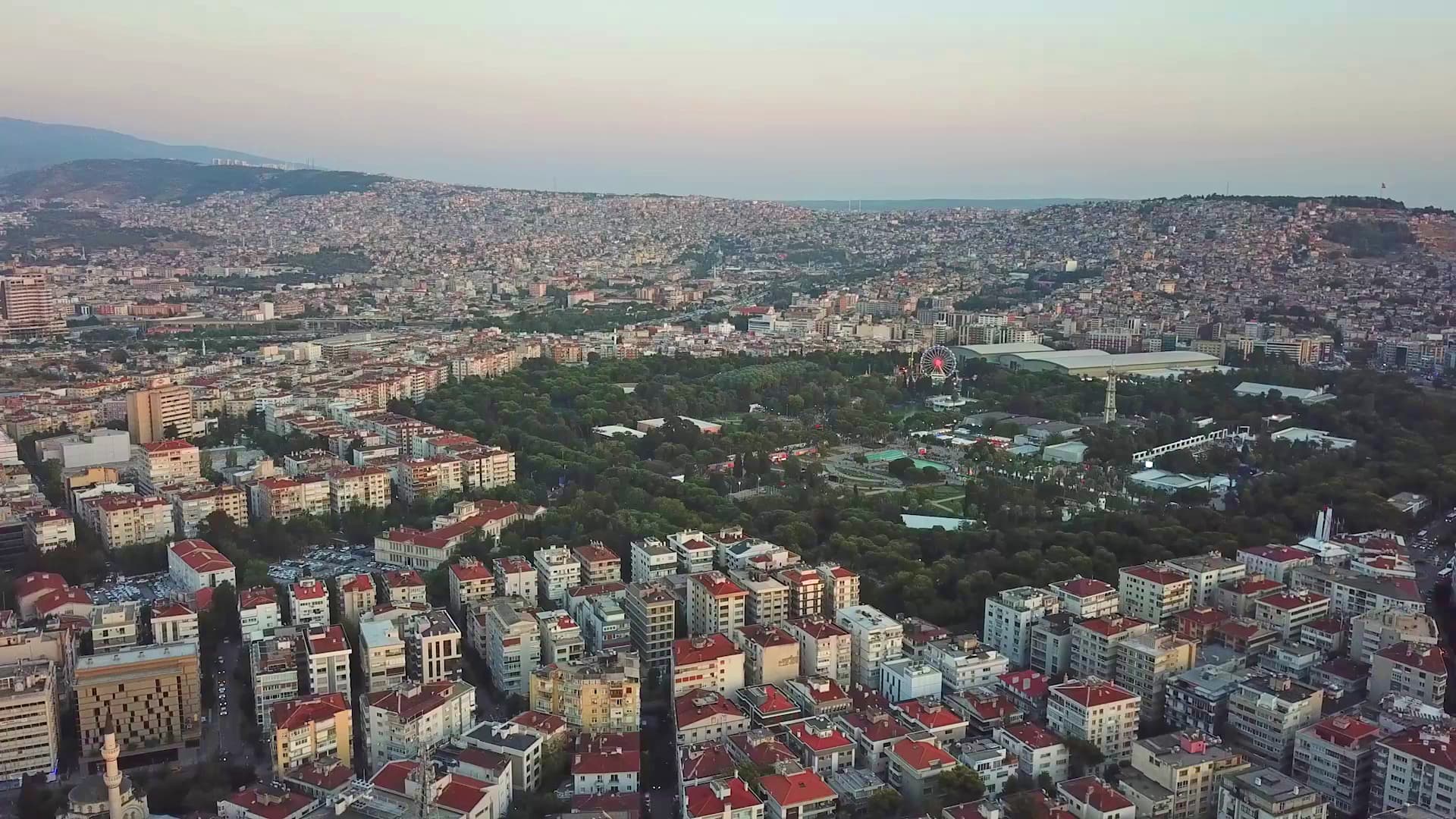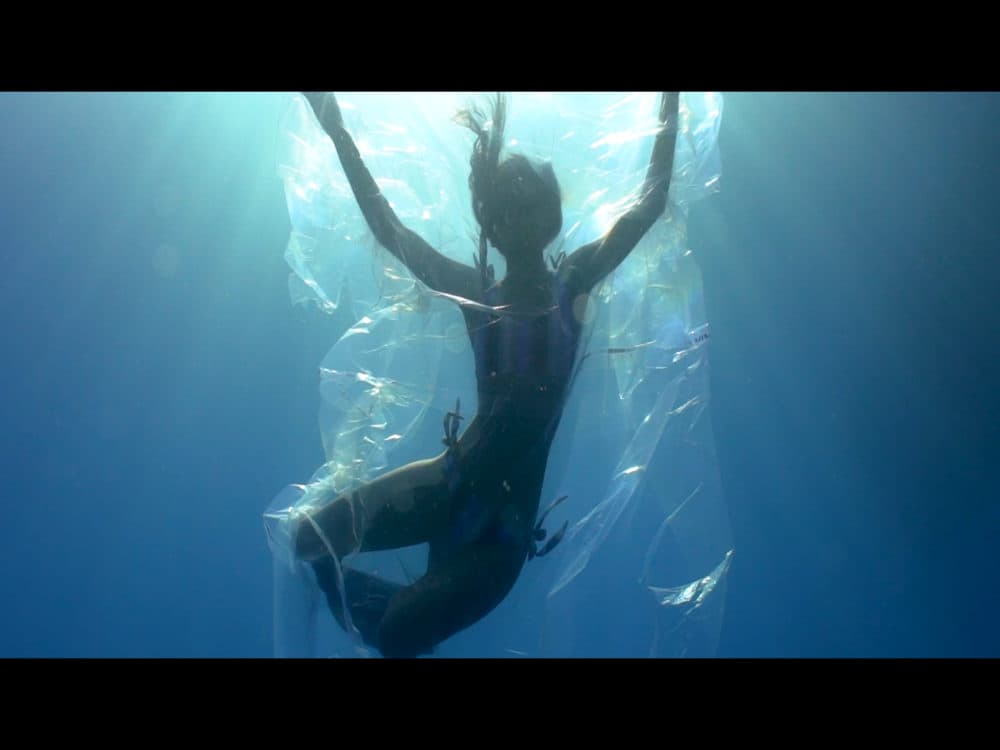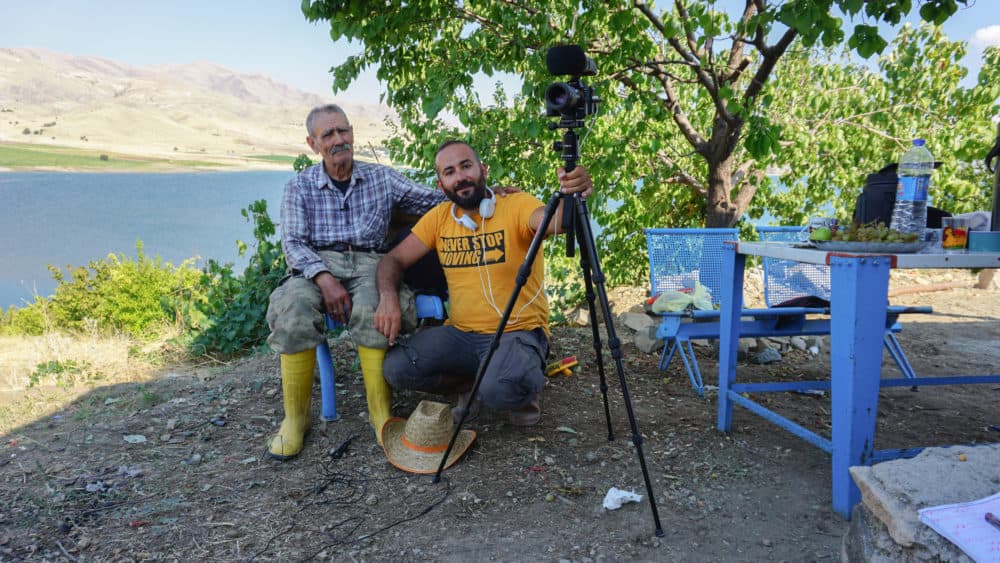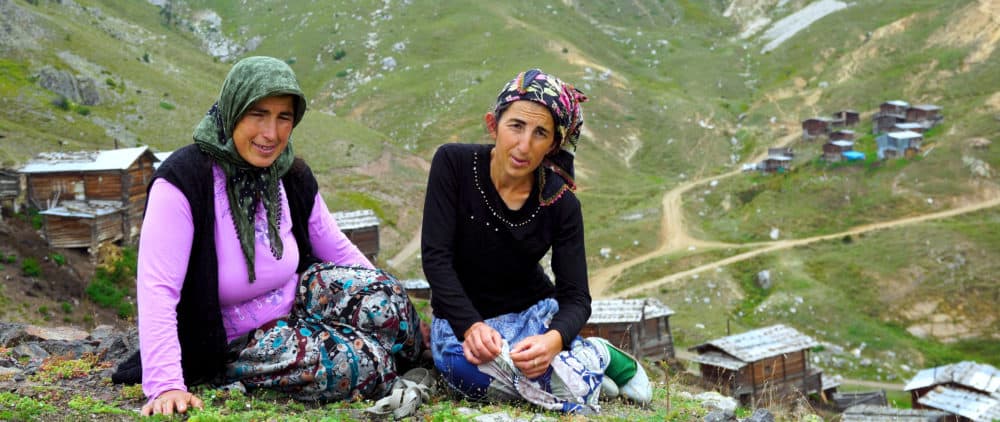Advertisement
Struggle, Survival And Clashes With The Natural World Screen At Boston Turkish Film Competition

Though the names offer a clue, it’s easy to forget that Back Bay and South Bay were actually once bodies of water. Boston may be an exaggerated example of manufactured coastlines but it’s not all that unique. Cities worldwide have covered water with land, often to bolster commerce and accommodate huge influxes of people.
This happened in Turkey’s capital city, too. Over the last several decades, Ankara’s network of rivers and streams have been enclosed by concrete. An absorbing documentary that questions this process, “Under the Road, The River! (Asfaltın Altında Dereler Var),” along with several other films that examine the increased pressure on the natural world, stream as part of the Boston Turkish Festival’s 15th annual Documentary and Short Film Competition from Nov. 12 through Dec. 15.
While themes do not necessarily coalesce within a given year’s film program, festival founder and director Erkut Gömülü says “environmental issues are one of the most consistent topics.” He cites an uptick in gold mining in Turkey over the last five or so years as well as the damming of rivers to generate electricity. Plus, Turkey has taken in millions of refugees from neighboring countries and, like many nations, has experienced mass migration from its rural areas to its cities. Gömülü says that with so much rapid change, “there is no shortage of topics in Turkey about real survival and struggle.” For him, films are the most powerful way to bring those issues to the forefront.
The documentary “Under the Road, The River!” explains that Ankara was designed for a population of 28,000. Now more than 5 million people call it home. Damning footage shows the increased flooding of Ankara’s streets. Then the film follows several individuals on quests to trace the buried — and unmapped — waterways. One artist has no idea she lives above a river. So she swaths a blue cloth along its path to alert her neighborhood. The film’s title references a cri de coeur used in Paris’ 1968 student protests, “sous les pavés, la plage!" (under the pavers, the beach). While more provocative than overtly political, the film’s nod to France may encompass the Paris Climate Agreement, which Turkey has signed but not ratified. (As of Nov. 4, the United States has officially withdrawn from the accord.)
Streaming in the same block as “Under the Road,” “Culture Park: An Oasis in İzmir (Kültürpark: İzmir’de Bir Vaha)” recounts the vast park’s evolution from international fairground to mixed-use and somewhat rundown recreational space. (The film references how Moscow’s Gorky Park followed a similar trajectory and serves as an inspiration.) In the documentary, advocates call for replenishing diverse plant species and dismantling large hangars to focus resources on preserving architecturally significant buildings.

Protesters call out the city’s decision to loan one of those buildings to a private university. In a divide as much about protecting public domain as it is about going green, one critic says, “Now you can see how to establish a university in two days… without spending five cents.” That same critic warns, “If this place goes, the looting of Kültürpark has started.” The third film in this block, “Only One World Left,” takes a melodramatic stand against the suffocation of ocean and human life by single use plastics.
Another block in the competition addresses human interdependence with nature through a handful of personality-driven shorts. In “Aunt Ümmü (Ümmü Teyze),” a Turkish expat tells “a little story about a great woman,” also an expat. Ümmü relocated to Germany with her husband in the 1990s. Their marriage quickly dissolved, and she raised four children on her own. Now 68, she bikes everywhere and works tirelessly in her garden, selling or trading produce to make up for a meager pension. This loving portrait connects her attachment to the land, and her fierce independence, to her Anatolian roots. One scene shows how she can’t abide being a burden on her children, she even plans ahead for death.

In “Ada'm,” a tragic death compels one man to move to an island and plant thousands of trees in memory of his wife. Like Ümmü, Ziya Abay doggedly tends the land. The trees produce more fruit than he has takers. “I give you life, you give me life,” he says while watering one. The sumptuous cinematography gives a palpable sense of how the arid landscape around Pertek, where he lives when not on the island, abuts water that flows to the Keban Dam. The film’s title has a nice twist in Turkish, says Gömülü. “Ada means island. Adam means both my island and man.”
Another title with two meanings that streams in the same block as “Aunt Ümmü” and “Ada’m” is “Dede” about a young man who, unlike other 30-somethings, chooses rural sheepherding over a higher-paying city job. Yet, Dede means grandfather in Turkish. His parents had lost so many children before him, they thought the name Dede would help him live to old age. Ironically, his choice to stay in his parents’ home makes older neighbors consider him wise.

While streaming in separate blocks, “Transhumant (Memtevri/Yaylacı)” and “Ovacik” both speak to the pressure on Turkish people to reexamine agricultural practices. “Transhumant” does so by depicting the fading “transhumant” (or nomadic) group of women who seasonally tend livestock in the Georgian highlands. Their village of 100 homes has shrunk to about 40, they say. Like “Ada’m,” this film transports viewers with stunning scenes shot in the height of a grass-covered mountainous summer and in feet of snow as, once again, nonstop work prevails. “You can’t find a woman here without a hernia,” says one of the matter-of-fact interviewees. They talk about wishing to study but being held back by discrimination, even though, one observes, “There is no life here without women.”
“Ovacik,” meanwhile, focuses on the fresh approach taken by the first mayor elected from the Turkish Community Party in the country. The film punctuates its portrait of Ovacik municipality (just north of Pertek, by the way) with the personality of its beloved mayor. He sets up a library and bike loan program (read an hour, ride an hour) and a system by which townspeople grow and distribute chickpeas to fund scholarships. He also arranges for some farmers to sell their products direct to consumer. An uncritical portrayal, in this film the community embraces a sustainability mindset that invests as much in its young people as in its agricultural practices.
This year, the Boston Turkish Festival’s Documentary and Short Film Competition streams Nov. 12 through Dec. 15 and uncharacteristically overlaps with the organization’s annual film festival, typically held in late spring and rescheduled because of the pandemic. Most of the festival’s original lineup of feature films, along with last year’s Documentary and Short Film Competition winners, will stream from Nov. 22-Dec. 15. The theme of the natural world surfaces in those films as well, most notably in “Hive,” where a young woman carries on the family beekeeping tradition passed down by her mother.
